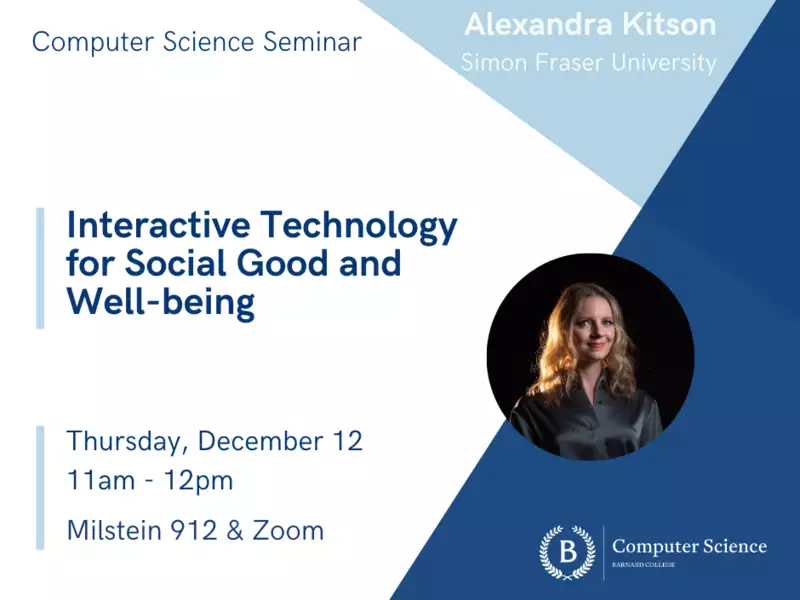
Computer Science Seminar: Alexandra Kitson (Simon Fraser University)
The seminar will be available for in-person and Zoom participation. To participate online, please email inquiry-cs@barnard.edu to receive the Zoom link.
As technologies like artificial intelligence (AI) and virtual reality (VR) evolve, they offer powerful tools for addressing mental health challenges and fostering social connection. This talk will explore how advanced graphics techniques and human-centered design can enable transformative applications that enhance well-being. First, I will introduce Lucid Loop, a VR system that integrates AI-enhanced neurofeedback and real-time rendering to create introspective and emotionally engaging experiences. By mapping brainwave data to adaptive visuals and soundscapes, Lucid Loop demonstrates how immersive environments can support emotional reflection and self-awareness. Next, I will present a VR-based intervention designed to help youth develop emotion regulation skills. Combining participatory design methods with advanced graphics techniques, this system incorporates biodata-driven visuals, adaptive environments, and networked interactions to support peer connection and mental health. By leveraging the adaptability and interactivity of these technologies, my work highlights opportunities for designing scalable, impactful tools for well-being. I will conclude with a discussion of future directions, emphasizing ethical considerations and collaboration opportunities to advance technologies for social good.
Dr. Alexandra Kitson is a multidisciplinary researcher at the School of Interactive Arts & Technology, Simon Fraser University. Her work focuses on designing, developing, and evaluating emerging technologies—including XR, AI, and wearable systems—to promote health and well-being. Her award-winning research has been showcased internationally and published in top venues such as ACM CHI, IEEE VR, and NeurIPS. Driven by a passion for social impact, Dr. Kitson applies her expertise to real-world applications through community-engaged research.
